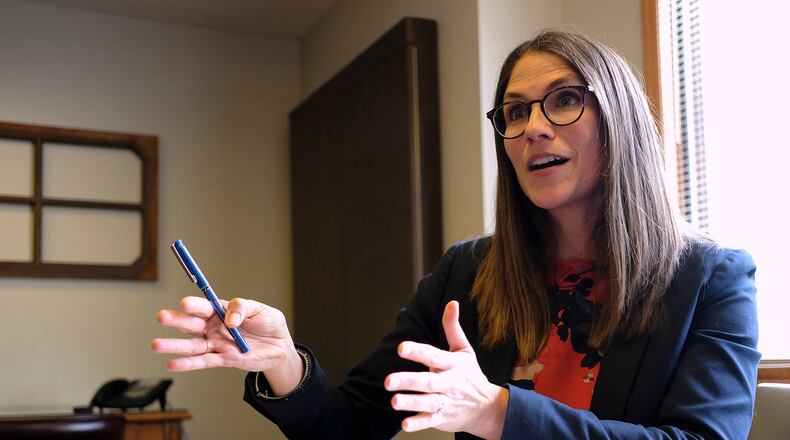“This is empathy support, like calling a friend, for someone to listen,” said Dr. Greta Mayer, CEO of the Mental Health Recovery Board.
The intention is to help those with mental health or substance abuse concerns before they escalate. This is the first such service offered in the communities the organization covers.
Warmlines get a conversation rolling for those needing help, and they can remain anonymous. Peers who have lived through mental health and addiction issues themselves and are in recovery man the lines.
Mayer said her staff knew about warmlines and when the state rolled them out knew it would be a valuable service to add, especially as the shutdown added to people’s stress and placed additional strain on healthcare resources.
“We took it seriously and knew it was needed in our community,” she said.
The program had a soft rollout in July with 44 calls received and 48 through Aug. 19, which Mayer said are good numbers. People have called with issues including stress, mental health, employment, physical concerns and housing.
“Even these preliminary numbers are showing there is a need,” she said.
Mayer emphasizes a warmline differs from a crisis line or hotline. It’s more of a conversation starter, to let a caller know someone is there to listen and if they need a higher level of help, they can be referred to a licensed and credentialed professional.
The staff will be looking at the demographics of those calling as well to determine future needs. Mayer said 23 percent of the first callers were in the 55-64 year-old age range, and this helps staff know who is most asking for help.
Funding for the warmline comes from emergency national and state funding and is offset with federal and state dollars according to Mayer.
MacKenzie Phillips, project manager of Thrive Behavioral Health which runs the local warmline out of Cuyahoga County where the peer staff works, has seen the positives.
Whereas in her territory the calls are on a time limit, for the Clark, Greene and Madison area they are not. One peer took a call at 4 a.m. and stayed on with the caller for four hours, Phillips said.
“We’re a place for people to turn to when it’s 2 a.m. and you can’t be face to face. That’s the beauty of the warmline,” she said.
Another advantage is those needing help are welcome to call again. Some have formed friendships with their peers and will call in during their shifts as a source of comfort.
“Everyone is supportive,” said Phillips. “We’re excited to provide this service and have emergency protocols in place for those who need it.”
The Mental Health Recovery Board is also partnering with Ohio Means Jobs in the three counties it serves to recruit qualified workers for local peer support.
“Any time we can help one another it strengthens the community,” Mayer said.
The warmline number is 937-662-9080 and is available 24 hours a day, seven days a week each day of the year.
About the Author
